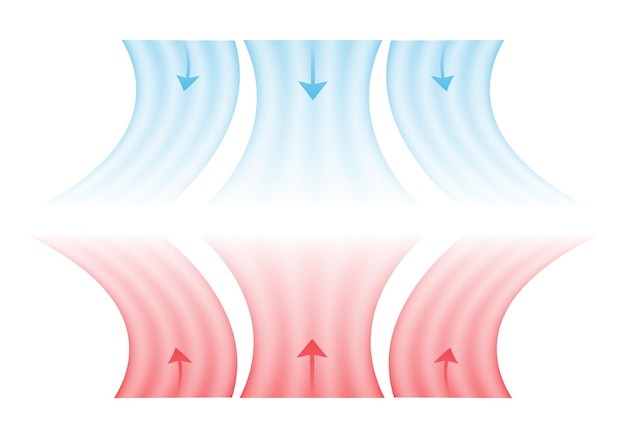Types of Instant Laxatives
Laxatives are over-the-counter products designed to stimulate bowel movements. They generally work by drawing moisture into the colon, bulking up the stool, or causing the muscles lining the intestines to contract and push their contents along for elimination. There are several types of laxatives, each differing in how they are taken, how they work, and how quickly they act.
Enemas
An enema is a liquid solution that is introduced into the rectum through the anus using a fluid-filled bag or a rectal bulb. Enemas are the fastest-acting solution for a backed-up bowel. While they can be administered at home, they are typically used in clinical settings, such as before or after surgery.
Fastest Acting Enema Solutions
Sodium phosphate: 2 to 5 minutes
Mineral oil: 2 to 5 minutes
Docusate: 2 to 15 minutes
Bisacodyl: 15 to 60 minutes
Rectal Suppositories
Rectal suppositories, also known as laxative suppositories, are pill-shaped and inserted into the rectum where they dissolve and take effect. They do not work as quickly as enemas but typically stimulate a bowel movement in about 30 minutes.
Fastest Acting Suppositories
Carbon dioxide: 5 to 30 minutes
Bisacodyl: 15 to 60 minutes
Glycerin: 15 to 60 minutes
Senna: 30 to 60 minutes
Oral Laxatives
Oral laxatives come in the form of liquids, pills, and powders and are available on grocery store and pharmacy shelves. Generally, they are taken at night to produce a bowel movement in the morning. This type of laxative falls into one of five categories, each working differently.
Osmotic Laxatives
Osmotic laxatives draw water into the colon to produce softer stool that is easier to pass. There are several over-the-counter varieties available, including milk of magnesia and magnesium citrate. Common side effects include nausea, bloating, cramping, gas, and diarrhea. Abuse of these laxatives can lead to dehydration and electrolyte imbalance, particularly low potassium levels.
Stool Softeners
Stool softeners, also known as emollient laxatives, trap moisture in the stool to soften it and make it easier to pass. They are one of the slowest-acting forms of over-the-counter constipation relief, taking 12 to 72 hours to work, and generally have mild action. Stool softeners received a poor ranking for effectiveness in one comprehensive review of different types of laxatives.
Bulking Laxatives
Bulking laxatives increase the mass of fecal waste to encourage a bowel movement. They are one of the gentlest types of laxative but are not suitable for everyone. Side effects include stomach pain, nausea, vomiting, and skin rash. Bulk-forming laxatives may contain ingredients like psyllium husk or methylcellulose, which are potential allergens. Taking psyllium by mouth could also present a choking hazard as it swells in the mouth and throat, so it must be consumed with plenty of water.
Stimulant Laxatives
Stimulant laxatives do not alter or add anything to your stool. Instead, they cause the muscles of your intestines to contract, moving stool toward the rectum. This kind of laxative is rougher on your system because it stimulates contractions of the intestinal muscles. Long-term use can cause dependence. Senna, a type of stimulant laxative, may cause stomach pains, faintness, cramping, nausea, and brown urine.
One common type of stimulant laxative is “whole leaf” or “outer leaf” aloe vera (sometimes called aloe latex). Although it sounds like a natural solution, outer leaf aloe can produce unpleasant cramping and loose, watery stools. The outer part of the leaf contains a compound called aloin, which can be harsh on the digestive tract, causing severe cramping and diarrhea, and in chronic use, may even cause intestinal or kidney damage. On the other hand, inner leaf aloe has no latex or aloin and is much milder. If you use an aloe supplement, select one made only from the inner leaf.
Lubricant Laxatives
Lubricant laxatives coat the colon in an oily film, allowing stool to pass more easily. They work more slowly than other types and may require a few hours, or even overnight, to produce the desired effect. Mineral oil is the most commonly used lubricant laxative. The body does not digest mineral oil, so it retains its greasy consistency throughout the digestive process. Long-term use of mineral oil can lead to side effects like fecal seepage and anal incontinence, as well as vitamin deficiencies.
Possible Side Effects of Relying on Laxatives
Though laxatives usually get the job done, relief often comes at a cost. Many people become so reliant on laxatives that they begin to overuse them, some without even realizing it. Overuse can damage your pancreas and the lining of your colon. Laxative abuse can even lead to dependence, which means the inability to have a bowel movement without them. Here are some of the negative side effects that come from overusing laxatives:
Laxative dependency
Organ damage
Electrolyte imbalance
Severe dehydration
Increased risk of kidney stones
Weak nails
Eat More Food That Is Rich in Fiber
If constipation is a common occurrence, reassess the foods you eat rather than reaching for the medicine cabinet. Laxatives only treat the symptoms of a larger issue. It’s very likely that your difficulty in the bathroom is due to a lack of fiber. In fact, fewer than 3 percent of Americans get enough fiber on a daily basis. Men should get 38 grams of fiber daily, while women need about 25 grams. If you’re eating the standard American diet, there’s a good chance that you’re in that 97 percent of people who fall short. If you could use more fiber, many of the best laxative foods are a great source. Check out my article about the best sources of fiber to increase your intake.
A Better Approach
Even if you do follow a healthy eating plan, a weekend of indulgence or even a new medication can cause occasional constipation. To naturally and gently resolve occasional constipation without using laxatives, try Oxy-Powder?. This gentle colon cleanser is safe, effective, and doesn’t cause nausea or the sort of embarrassing emergencies that send you scrambling for the nearest toilet. Regularly cleaning your colon with a gentle, oxygen-based colon cleanser like Oxy-Powder can keep your bowel movements regular and satisfying.



